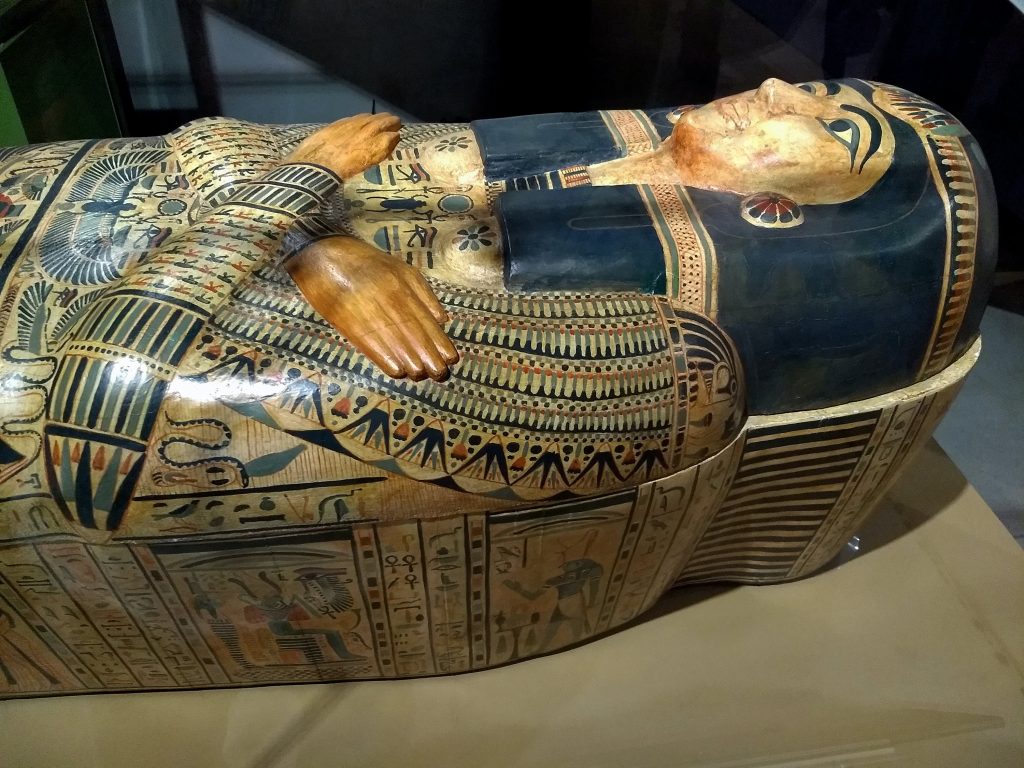Ahmad Hafez, 37, the front desk manager at a well-known Sharm el Sheikh resort, has noticed a new pattern in his booking system since the start of year: Room occupancy rises dramatically for a few days, only to drop significantly in subsequent weeks. “It seems that every time there is an event in the city, occupancy rises dramatically,” he says, “then returns to below-average afterward.”
 Hossam el Helw, chairman of Safa Tours, on the other hand, has seen high occupancy rates throughout the year, especially in Alexandria. “There is a definite lack of ‘decent’ hotel rooms for tourists from Europe,” he says. “In Alexandria, for example, we need four times the number of rooms we have now.”
Hossam el Helw, chairman of Safa Tours, on the other hand, has seen high occupancy rates throughout the year, especially in Alexandria. “There is a definite lack of ‘decent’ hotel rooms for tourists from Europe,” he says. “In Alexandria, for example, we need four times the number of rooms we have now.”
That has been a prevailing trend across most other governorates. “When we find rooms, they are likely too costly,” says Helw, “or the property is below the standards of foreign tourists.”
Government investment in hotels has been chugging along at a relaxed pace relative to other projects, such as the New Administrative Capital. Likewise, private developers are taking their time when it comes to expanding investments mainly due to insufficient communication with the government regarding their short- and long-term plans. “Regarding communication with the Ministry [of Tourism], I think it could be better,” says General Manager Ibrahim Gamil of Holiday Inn Cairo City Stars.
“It is good that you have more tourists wanting to visit Egypt,” says Helw. “However, where would they stay if there aren’t enough suitable hotel rooms.”
A balanced industry
The hotel business in Egypt is a mix of government, domestic and international investments.
State investments in hotels reached EGP 228.3 billion ($14 billion) by the end of 2018, according to a report by Colliers. The plan is to add $4.2 billion in new hotel investments this year. That is 25 percent more than what the government injected into the sector the previous year. By 2022, the government wants to add 55,121 hotel rooms in 67 locations nationwide.
The Holding Company for Tourism and Hotels (HOTAC) is the government-owned company established in 1991 with a mandate to attract international chains to manage historic and purpose-built facilities. It owns 6,000 rooms in 24 hotels out of more than 108,000hotel rooms in the country, according to CEIC Data’s 2016 report. The Egyptian General Co. for Tourism & Hotels (EGOTH) is a wholly owned subsidiary of HOTAC tasked with attracting hotel chains to manage state-owned facilities with infrastructure that meets international standards. One example is Khedive Ismail Palace in Zamalek, which is now the Cairo Marriott Hotel. Another is Mena House, adjacent to the Giza Pyramids, which Marriott also manages for EGOTH.
HOTAC owns six other subsidiaries. However, only one operates in the hotel industry: El Maamoura Co. for Construction & Tourism Development. The rest include entertainment businesses such as Misr Co. for Sound and Light, and several department stores such as Sednaoui, Benzion and Salon Vert, among others.
The holding company also has minority shares in four real estate development businesses. Three of them invest in Upper Egypt while one focuses on Alexandria. HOTAC also has a 12.5 percent stake in The Egyptian Fund for Financing & Investment, which helps raise money for hotel development during the construction phase.
However, Gamil of Holiday Inn claims the private sector dominate the hotel market since they own more than 90 percent of Egypt’s hotel rooms. Private developers buy an existing property to convert to a hotel or build one from scratch. They would then contract with an international hotel chain to manage their properties. The contract is entirely negotiable, with no limitation mandates by the state. The JW Marriott along the Ring Road is in the Mirage City complex, which Group Ghabbour built and currently owns. Renaissance Group manages another smaller hotel in the complex. Group Ghabbour owns four other hotels in Cairo and Hurghada, all managed by international chains.
That modus operandi gives international hotel chains the opportunity to select the best profit model and lowers entry and exit barriers for global brands and property owners. Either party could end the contract and pay a fine or wait for its expiration, then seek new partners if they wish to continue their operations in the country.
Most private hotel developers and chains that manage these facilities are not on the Egyptian stock exchange, therefore they are not obliged to disclose financial details.
 State support
State support
During the difficult years following the 2011 and 2013 revolutions, the government continued to support some private and state-owned hotels. “The government has helped several hotels in certain locations that foreign tourists stopped visiting,” says Gamil. That included hotels on the Red Sea coast and in Sinai, all of which are owned by private developers. Also, some properties in Downtown Cairo received government help. “The facilitations included deferred payment of debt installments and utility
bills,” says Gamil.
A year ago, the government created an assistance fund for struggling hotels. The fund can either fully procure hard-hit facilities, assume management control until the return of profitability or partially acquire the property. In the last scenario, the hotel’s management must use the money to pay off liabilities.
Since November 2018, the government has been in negotiations with third-party investors and state-owned banks to increase contributions to the assistance fund.
Rooms in demand
Many in the hospitality industry say it’s time to double down on hotel investments. “All international hotel chains are already in Egypt,” says Tewfik El-Kady, Steigenberger Middle East managing director. “That by itself is a testament to how much tourists want to visit the country.”
Since the devaluation of the pound in 2016, value-minded travelers brought a surge of business to hotel chains as tourist arrivals increased from 2.3 million at the end of that year to 11.3 million in 2018. But now, Helw of Safa Tours struggles to accommodate budget-conscious clients. According to an April 2019 article in Egypt Today, hotel occupancy in Alexandria hit 98 percent between New Year’s celebrations and Coptic Christmas. “It is good for properties that are achieving 90 percent occupancy,” he says. “For us, not so much.”
Meanwhile, Cairo and cities that are almost solely dependent on tourism such as Hurghada and Sharm el Sheikh face a different problem. “The number of hotel rooms is fine if we are talking about gradual annual increases,” says Gamil. “However, we are hitting the limit of room availability when there is a conference or well-publicized event.” He recalls that last year there were several back-to-back conferences throughout the capital that brought properties to capacity. “In the hotel industry, you can’t invest to meet the demands of a handful of annual spikes in room occupancy,” he says.
On the other hand, El-Kady believes that locations such as Sharm el Sheikh and Hurghada have a surplus of rooms. “In certain areas, we should stop building more hotels […] to maintain adequate rates,” he says.
Government push
HOTAC’s Chairwoman Mervat Hataba takes a steady approach when it comes to her portfolio of properties. “We capitalized on the low tourist arrivals in the past couple of years by renovating the facilities we own,” she says, adding that EGP 2 billion was allocated to upgrade historic hotels.
A significant renovation project is under way at the company’s 8,000-square-meter Aziza Fahmy Palace in Alexandria. “We have finally cleared the final legal hurdles with the palace’s heirs,” says Hataba. “Now we will start our renovation work. We aim to make it like the Cairo Marriott Hotel.” However, that will take time as HOTAC is still in the design phase of the project.
In the New Administrative Capital, the company is erecting a purpose-built hotel on a 10,000 square-meter site and maintains plots in Sharm el Sheikh’s Ras Gamila quarter. “We are not auctioning or assigning any of them until tourism stabilizes,” says Hataba. “The plan is to contract 50 percent of those plots to a private hotel developer under a 50-year usufruct agreement. That developer also would be responsible for securing a hotel-management company.”
On a regulatory level, the Ministry of Tourism announced it is working with the U.N.’s World Tourism Organization and the Egyptian Hotel Association to upgrade hotel classification criteria. The last revision was in 2006.
The changes are unlikely to affect existing rankings. Having already seen a draft of the proposed new criteria, Gamil thinks his Nasr City property will keep its five-star rating.
New in the classification criteria is the inclusion of eco-lodges, dahabeyas, heritage hotels, apartment hotels and environmental safari camps. “Overall, that new classification will be good for business,” says Gamil.
Thinking outside the city
An investment opportunity for hotel developers and international chains is that Egypt’s hotels are only in a handful of cities, according to Helw. And the industry’s horizons widen as the state builds new towns and roads.
Ayoub Adly, Remco for Tourism Investment CEO, cites the Suez Canal Economic Zone. “I have already submitted a request for a plot in the outlets district. That location will have high foot traffic given that there should be many shops selling at factory prices,” he says. “I have seen in other countries how busy such hotels are.”
Adly aims to cater to shoppers coming from other governorates or tourists who would typically stay one or two nights. Other visitors Adly hopes to attract are sailors and cruise-ship passengers who have one or two nights for shopping or excursions into Sinai.
The site is currently barren land. However, Adly hopes that seven years from now — when he opens his hotel — shops and cafes will be open for business. He is also optimistic there will be more paved roads between the Suez Canal and the rest of Sinai to make excursions more comfortable, safer and quicker. Additionally, the airport in Ras Sudr, which is under construction, will open up the middle of Sinai to tourists.
Another prime location for hotel developers and chains is Sheikh Zayed and Sixth October City. Such facilities would mainly cater to businesses. “We will manage a property in Sheikh Zayed that is currently under construction,” says Gamil. The facility overlooks the main highway connecting Cairo with Sixth October City and sits between two commercial and business complexes.
Additionally, the new facility is close to Sphinx Airport, the Giza Pyramids and Grand Egyptian Museum, which will also make the hotel, expected to open in 2021, a hot spot for tourists. In coming few years, Gamil anticipates exponential growth in the number of tourists visiting the Giza Plateau, given how much the government is investing there.
Another location Gamil finds attractive for future hotels is the corporate district surrounding the Al Manara Conference Center in New Cairo. Tenth of Ramadan City is another prime location. “I was surprised when I heard that a hotel opened there recently,” says Gamil. “However, it makes sense given how many factories are there, selling nationwide and abroad. That hotel is where buyers and sellers stay as they do deals with the factories in the city.”
El-Kady of Steigenberger Middle East sees opportunities in the Western Desert. “The best destinations to build new hotels are in Siwa, El Kharga and El Dakhla oases,” he says. Steigenberger Middle East currently manages six properties in Cairo, Alexandria, Taba, Damietta and Luxor, as well as five franchised hotels overlooking the Red Sea and one in Luxor.
Chairman Amr Attia of Misr Hotels Co., which owns the facility that Ritz Carlton manages in Downtown Cairo, thinks converting historic buildings to hotels is a viable proposition for both international hospitality chains and the government. “I think it is the fastest way to increase the country’s hotel inventory,” he says. “The government needs only to contract a foreign company to upgrade the building’s infrastructure to meet international hotel standards.”
Challenging times
Despite those opportunities and Egypt’s substantial tourism potential, international hotel chains are likely to be cautious about investing in the country.
For them, the devaluation of the currency hurt their business. “Between 2014 and 2018, Holiday Inn City Stars has been meeting and exceeding target revenues in the local currency,” says Gamil. The problem is that the revenue in dollars transferred to the parent company dropped significantly. “Our profits have been growing every year in pounds. However, in terms of dollars we still didn’t reach pre-float levels. That is because we can’t charge the same room rates in dollars as hotels outside Egypt.”
Another challenge is finding the right caliber employees to work in hospitality. “That is a constant challenge that is getting harder to tackle. You get fresh graduates with no background in hospitality. You train them, and then they decide if this industry is for them or not,” says Gamil. “Also, maintaining hygiene levels is difficult, especially among low-level staff. You need to have strict checks and procedures. Those things raise our costs.”
For El Kady, the problems he faces include finishing facilities that meet international standards including infrastructure for guest services, civil defense and firefighting capabilities, and general health and safety standards.
Another quandary facing hoteliers is a price war that some local operators wage to attract tourists. For them, cutting prices usually attracts enough tourists to cover their losses. Lower rates, however, compromise hygiene levels and impact the quality of food and beverages, among other things. “It is a war I would never enter,” says Gamil.
Also, Egypt should set a seasonally balanced calendar of well-publicized events to create more consistent occupancy rates, notes Gamil. Accordingly, international hotel chains can use those figures when planning expansion in Egypt.
Finally, the government could share more details about its tourism plans. That information includes targeted markets and what types of tourists are priorities. “It would make my life easier if the state does that,” says Helw. “That way, I would be able to talk to the right international tour operators and offer them the right packages in line with the government’s strategies.”







